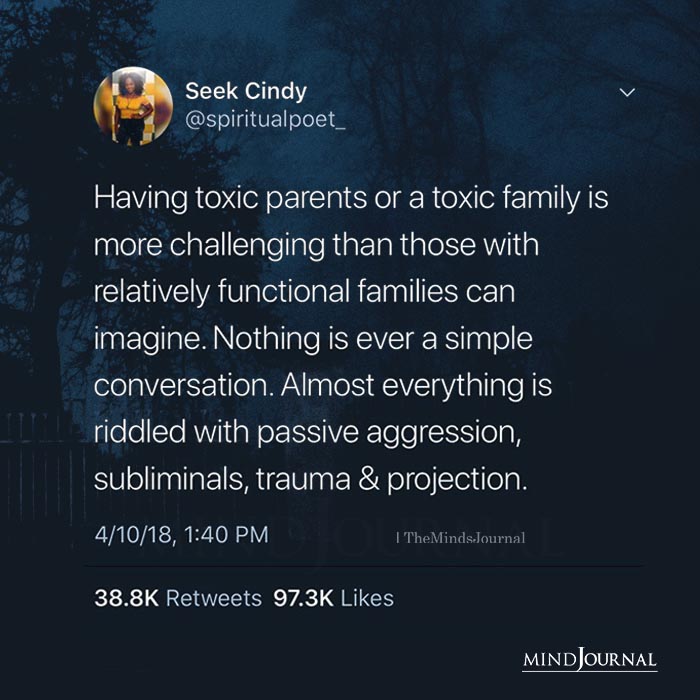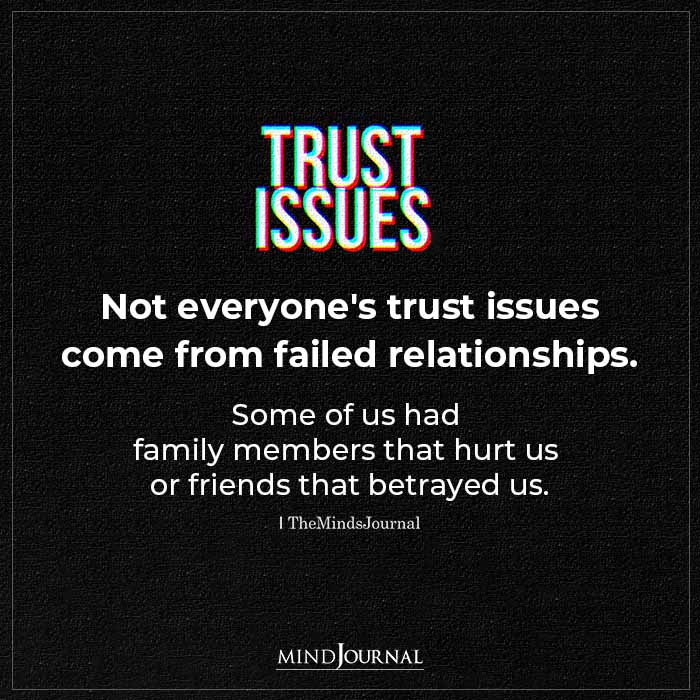“Daddy issues” isn’t just a buzzword; it reflects an unhealthy relationship with one’s father. This Father’s Day 2024, let’s explore how it impacts self-perception, relationships, and worldview.
From seeking validation to struggling with trust, these signs can impact both men and women and have roots in our deepest emotional experiences.
Understanding the complex dynamics of daddy issues is important, but it is crucial to approach them with sensitivity and without reinforcing stereotypes.
So, let’s dive in and explore the telltale signs of daddy issues – and maybe shed some light on a topic that’s often shrouded in mystery, but before that let’s learn what are daddy issues exactly.
What Are Daddy Issues?
If you’re thinking, what are daddy issues, then it is a term used to describe unresolved psychological and emotional challenges that arise from a person’s relationship with their father or father figure.
These issues can manifest in various ways, such as difficulty with trust, self-esteem, abandonment, and intimacy which can lead to patterns of behavior that negatively affect a person’s relationships, self-worth, and mental health.
Related: What Are Daddy Issues? How Fathers Impact A Daughter’s Romantic Relationships
What Causes Daddy Issues Symptoms?

What causes daddy issues you ask? Well, the signs of daddy issues can stem from a variety of psychological factors and experiences, including:
1. Absent or unavailable father figure: Growing up with an absent or emotionally distant father can lead to feelings of abandonment, neglect, and a longing for paternal love and validation.
2. Neglect or abuse: Experiencing neglect, physical or emotional abuse, or witnessing such behaviors between parents can contribute to signs of daddy issues in a woman. These negative interactions can lead to mistrust, fear, and difficulties in forming healthy relationships.
3. Role model and attachment issues: The relationship between a child and their father plays a crucial role in the development of attachment styles and the formation of healthy relationships.
Inconsistent or negative interactions with the father can result in insecure attachment patterns and challenges in connecting with others.
4. Unresolved emotional needs: If a child’s emotional needs, such as affirmation, validation, or support, are not met by their father, it can create feelings of inadequacy, low self-esteem, and a constant search for external validation.
5. Parental separation or divorce: The dissolution of the parental relationship can have a significant impact on a child’s perception of their father. This event can trigger feelings of abandonment, and confusion, and may disrupt the child’s sense of stability and security.
6. Cultural or societal influences: Societal expectations, cultural norms, or gender roles can also contribute to the development of daddy issues symptoms.
For example, growing up in an environment that promotes rigid gender stereotypes or places excessive pressure on father-child relationships may influence how daddy issues manifest.
If you’re looking to fix your paternal relationships and emotional landscapes towards healing and growth, here are common signs of daddy issues in a woman
Related: Being a Father Versus Being a Dad: 6 Important Differences
that may indicate challenges or unresolved feelings related to one’s father:
15 Signs Of Daddy Issues In A Woman
1. You seek validation from men, older men
Ever catch yourself constantly seeking validation from men, especially the older ones? Well, it might be one of the infamous and common signs of daddy issues.
We all desire validation, but when it becomes a pattern, and you specifically yearn for it from older men, it might be time to take a closer look.
We’re talking about those charming, experienced gentlemen who may not always have your best interests at heart.
It’s important to remember that validation should come from within, from your own self-worth and accomplishments. However, if you find yourself constantly in pursuit of their approval, it’s time to hit the pause button.
2. Your trust issues ruin your adult relationships
Growing up, you never had a reliable father figure to guide you through life’s challenges. This left you with deep-seated signs of daddy issues that have continued to impact your adult relationships.

You find it difficult to trust others and often push them away out of fear of being abandoned or betrayed. Despite wanting to form healthy connections, you struggle to let down your guard and allow yourself to be vulnerable.
Your past experiences have left a lasting impact on your ability to love and be loved, but with the right support and self-reflection, healing is possible.
3. You find compatibility in older men
There’s no denying that sometimes we find ourselves attracted to certain types of people, and for some, that may mean seeking out partners who remind them of their father.
While this might seem like a harmless preference, it could be what causes daddy issues and deeper emotional issues. Many psychologists refer to this as one of the signs of daddy issues in a woman.
It can manifest in a variety of ways, such as seeking out older men for their maturity and stability or trying to fill a void left by an absent or emotionally unavailable father.
It’s important to recognize these patterns and work through any unresolved feelings to ensure healthy relationships in the future.
4. You fill the emotional void with sex
Do you find yourself seeking physical intimacy as a way to fill an emotional void? Are you struggling to connect with others on a deeper level and relying on sex as a substitute for true emotional connection?
If so, you may be experiencing the commonly associated daddy issues symptoms. While this term may seem taboo, it refers to the psychological effects of a distant or absent father figure, which can lead to a craving for validation and intimacy in other areas of life.
5. You struggle to set firm boundaries
You may find it challenging to establish clear boundaries in your relationships, perhaps due to underlying issues stemming from a lack of emotional support and validation from your father.
As a result, you may gravitate towards toxic partners who reinforce your deep-seated fears of abandonment and rejection, perpetuating a cycle of codependency and emotional turmoil.
Despite your best efforts, you struggle to assert your needs and desires, often sacrificing your well-being for the sake of pleasing others. If left unaddressed, these unresolved daddy issues can continue to impact your relationships and prevent you from cultivating healthy, fulfilling connections.
6. You prioritize the needs of men over yourself
You’ve always found yourself putting the needs of men on a pedestal, even if it meant neglecting your wants and desires. It’s like you’re programmed to prioritize their needs above your own, a pattern that’s become all too familiar.
Some might say it stems from your yearning for your father’s attention growing up, always trying to please him and win his approval.
But that need to please has spilled over into your relationships with men, leaving you feeling depleted and unfulfilled. It’s time to break free from those daddy issues and start prioritizing your own needs.
7. You seek validation through appearance
You may constantly seek validation in your physical appearance, yearning for external affirmation to boost your self-esteem. This struggle with self-worth could be rooted in signs of daddy issues, reflecting a longing for paternal validation and acceptance.
These unresolved emotions may manifest in an unrelenting pursuit of beauty standards, as you seek to fill the void left by an absent or emotionally distant father figure.
It’s important to recognize these underlying issues and work towards healing and self-acceptance, finding validation within yourself rather than solely relying on external appearances.
8. You have a fear of abandonment and end up dating red flags
Due to a fear of abandonment, you may unintentionally find yourself attracted to individuals who are not well-suited for you. This fear can lead to a tendency to cling to partners who may not be the best match.

Additionally, the presence of daddy issues might be apparent, characterized by emotional wounds and unresolved conflicts stemming from the relationship with one’s father.
These issues may manifest in seeking validation and security from romantic partners in unhealthy ways. It is important to recognize these patterns and work towards healing and developing healthier relationship dynamics to foster personal growth and well-being.
9. You question authority figures
Do you question the legitimacy of authority figures? Or find it difficult to trust people in power, such as teachers, managers, and even parents?
While these traits may not necessarily indicate direct signs, however, some experts suggest that certain patterns of behavior or emotions can stem from unresolved father-related conflicts or traumas.
For instance, if you grew up with an absent, neglectful, abusive, or overly demanding father, you may have developed a deep-seated resentment or mistrust towards men in authority.
Of course, not everyone who questions authority or has issues with their father has the same underlying motivations or experiences. However, if you resonate with some of these signs of daddy issues in a woman, it may be helpful to address your issues.
10. You may challenge rules and boundaries
Are you a rebel at heart? It’s possible that your daddy issues symptoms could be the reason behind your tendency to challenge rules and boundaries.
If you grew up with an overly controlling or critical father, you may have developed a deep-seated sense of insecurity or self-doubt that fuels your need to defy authority and assert your independence.
While rebellion can be a healthy way to break free from limiting beliefs, it’s important to recognize and heal the underlying wounds that may be driving your behavior.
11. Your achievements tend to define your worth
One of the signs you have daddy issues is despite your accomplishments, you may struggle with feelings of inadequacy or feel like you’re not good enough. These emotions stem from a variety of sources, including unresolved issues with your father.
The impact of these signs of daddy issues can manifest in various ways, such as seeking validation, struggling with trust, or having difficulty forming healthy relationships. Remember, true self-worth comes from within and should not be solely reliant on external achievements or parental approval
12. You struggle to express emotions
One of the signs you have daddy issues is when expressing emotions becomes daunting and you withdraw during confrontations. Grappling with the intricacies of your feelings due to unresolved parental issues adds depth to your personal journey.
It intertwines and challenges forming healthy relationships, seeking validation, and grappling with trust. This unique combination of emotional struggle and complex daddy issues adds layers of complexity to your path of self-discovery.
13. You have unwarranted guilt and shame
If you’re grappling with daddy issues symptoms, it’s common to feel a persistent sense of guilt or shame, even when there’s no justifiable reason for it. You might feel unworthy of love and attention as if you don’t deserve the good things that come your way.
These feelings can be deeply ingrained, and they can impact your self-esteem and overall well-being. It’s essential to recognize that these emotions are often rooted in past experiences with your father or father figure.
Seeking therapy or support can help you overcome them and move towards a healthier and more fulfilling life.
14. You hold past emotional baggage
Carrying the weight of past emotional baggage is one of the common signs of daddy issues in a woman. It may manifest in the form of difficulty forgiving those who have caused hurt or pain.
This emotional baggage can affect current relationships, making it challenging to trust or let go of the past. The unresolved paternal issues can lead to a pattern of seeking validation from others, perpetuating the cycle of emotional baggage.
15. You tend to jump from one relationship to other
One of the unmistakable signs of daddy issues is the tendency to swiftly jump from one relationship to another. Driven by a fear of solitude, you may find yourself leaping from one partnership to the next without allowing time for healing and self-reflection.
The underlying unresolved paternal concerns intensify this pattern, as you seek validation and a sense of security through rapid romantic entanglements.
This repeated cycle not only inhibits your personal growth but also perpetuates unresolved issues, making it essential to confront and address these deep-rooted challenges to forge healthier and more fulfilling connections.
So, What To Do When You Have Daddy Issues?
Navigating life with daddy issues can be an overwhelming journey, but the good news is that there are steps you can take to heal and move forward. If you’re wondering, “What to do when you have daddy issues?”, take a good look below!
- Acknowledge and accept your feelings: Recognize the impact of your daddy issues on your emotions and behavior. Understand that it’s normal to have these feelings and that they are valid.
- Seek self-reflection and understanding: Take time to reflect on your relationship with your father and how it has influenced your life. Consider therapy or counseling to gain deeper insights into your emotions and experiences.
- Process and grieve: Allow yourself to grieve the loss or absence of a nurturing father figure. This may involve expressing your emotions, journaling, or engaging in therapeutic activities that promote healing.
- Seek support: Reach out to trusted friends, family members, or support groups who can provide a safe space for you to share your experiences and receive emotional support.
- Set boundaries: Establish clear boundaries with your father or any negative influences related to your signs of daddy issues. This may limit contact or distance from toxic relationships.
- Practice self-care: Engage in activities that promote self-love and self-care. Such as exercise, mindfulness practices, pursuing hobbies, etc.
- Challenge negative beliefs: Replace negative beliefs about yourself, relationships, and trust with positive affirmations. Work on developing a healthy self-image and promoting self-worth.
Related: A Recent Study Reveals Fathers Have More Influence in A Daughter’s Life Than Mothers
Remember, healing from the signs of daddy issues is a personal journey that takes time. Be patient with yourself and seek professional help if needed.
It’s important to remember that these signs can be indicative of various underlying issues and not solely attributable to signs of daddy issues in a woman.
So, if you have a healthy relationship with your father, cherish it! Till then, happy father’s day 2024!
Frequently Asked Questions (FAQs)
What causes daddy issues in a woman?
Girls with daddy issues is a common thing. And it can be caused by various factors, including an absent or emotionally unavailable father, neglect or abuse, parental separation or divorce, and cultural influences. These experiences can lead to feelings of abandonment, and difficulties in forming healthy relationships.
What to do when you have daddy issues?
Seeking professional help through therapy or counseling is an effective way to address daddy issues. Therapy can provide a safe space to explore and process underlying emotions, and develop healthy coping mechanisms. Self-care practices like meditation, journaling, can also support the healing process.
What are daddy issues and mommy issues?
Daddy issues and mommy issues are terms used to describe psychological challenges or unresolved emotions related to one’s relationship with their father or mother, respectively.











Leave a Reply